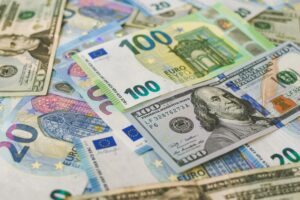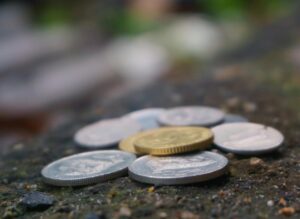The COVID-19 pandemic has led to an unprecedented global health, social and economic crisis. Although the crisis is global, the consequences have been unevenly felt, with some countries better equipped to face the shock and quickly kick-start the recovery, and other countries still lagging behind. Indeed, inequities in vaccine supply and access to external finance are making the recovery a two-track one.
After experiencing the worst underperformance ever in 2020, with a growth rate of -1.9%, Sub-Saharan Africa is set to grow by 3.3% in 2021. However, given the additional financing need of up to $285 billion estimated by the International Monetary Fund (IMF) over the next five years, to fight the pandemic and accelerate economic recovery, collective action is needed to address Africa’s financing needs, and to support an inclusive and sustainable recovery of African economies from the COVID-19 pandemic.
The G20 meeting of Finance ministers and Central Bank Governors on 13 October took some steps forward but more ambition is needed for unlocking instruments for African green recovery.
Below are three main areas of intervention:
- Reallocating SDRs
In August 2021, the IMF agreed to its fifth (and by far the largest) allocation of Special Drawing Rights (SDRs) to help countries financially recover from the pandemic. $650 billion were allocated to IMF member states, to serve as “a shot in the arm for the global economy at a time of unprecedented crisis.” As the IMF allocates SDRs to its members in proportion to their quotas, which reflect their relative economic positions in the world economy, rich countries have received far more SDRs than poor countries. In fact, under the quota system, African countries received a total of $33 billion of SDRs. By comparison, the United States received $118 billion.
A reallocation in favour of low and medium-income countries is therefore needed, the more so as advanced economies, like Italy, are already benefitting from flexible fiscal spaces and large amounts of grants and loans from the recovery plans. As consensus has emerged on the need for the reallocation to happen, the debate is now centered around mechanisms for achieving it. The IMF has put forward three proposals: using SDRs to boost the resources of the IMF’s Poverty Reduction and Growth Trust (PRGT); using SDRs to provide initial funding to a new IMF fund, the Resilience and Sustainability Trust (RST); on-lending SDRs to those Multilateral Development Banks that are prescribed holders of the SDRs, including the World Bank. The G20 Finance called on the IMF to establish the Resilience and Sustainability Trust, but no clear timeline was given. G20 Ministers also affirmed to be working on a significant scaling up of the PRGT’s lending capacity, but even in this case no further details were given.
What would be needed at this stage are countries putting forward significant commitments for accelerating action. At the summit on the financing of African economies, in May 2021, French President Macron and African leaders called for the reallocation of 100 billion SDRs from the richest countries to African countries. At UNGA in September 2021, French Foreign Minister Le Drian announced France’s willingness to transfer 20% of its SDRs to African countries. This set an example for other countries to follow, ideally with even more ambitious commitments. Italy could follow by committing to the reallocation of at least 20% – ideally more – of its SDRs, amounting to about $20.6 billion in total. This share of reallocation could then be dedicated for 50% to the new RST, for 25% to the PRGT and for 25% to African countries. These reallocations should be in the form of grants, not loans. In addition, Italy needs to advocate for a shift of the IMF away from fiscal consolidation (this would reduce the impact of the two Trusts) towards a more sustainable growth.
Most importantly, what is key is that reallocation is done in such a way that doesn’t place future burden on African economies, that means channelled SDRs must provide debt-free financing and not include economic conditionality. That said, they could be linked explicitly to the implementation of the Paris Agreement and the Sustainable Development Goals (SDGs). Also, channelled SDRs should not reduce development aid commitments by high-income countries, nor climate finance commitments.
- Debt restructuring
In April 2020, the G20 and the Paris Club countries established the Debt Service Suspension Initiative (DSSI), i.e. a deferment of debt service owed to official bilateral creditors (government-to-government), thus providing eligible countries with liquidity support for responding to the pandemic. In April 2021 the G20 Finance Ministers and Central Bank Governors agreed to a final extension of the DSSI until December 2021.
In November 2020, the G20 and Paris Club countries also launched the Common Framework for Debt Treatment beyond the DSSI, aimed at supporting low-income countries dealing with unsustainable debt. To date, however, only three countries (Chad, Ethiopia, and Zambia) have requested a Common Framework treatment. The main reasons behind a lack of interest in this instrument are the concern of credit rating downgrades and the failure to require mandatory participation of the private sector.
While the debt relief efforts carried out so far are commendable, ambition is needed for a new debt restructuring architecture that takes into account:
- The shift in Africa’s creditor landscape away from multilateral and traditional bilateral creditors to private creditors and new entrants like China, which is not a member of the Paris Club.
- Long-term financing requirements of developing countries to meet the SDGs and the Paris Agreement.
Italy could commit to work with the incoming Indonesian Presidency in 2022 to deeper institutional reforms at the IMF Also, an extension of the DSSI to deeper institutional reforms at the IMF, to ensure its lending and debt sustainability frameworks remain fit for purpose. Also, an extension of the DSSI to the end of 2022 will be needed to ensure liquidity is available for a sustainable recovery as well as a deeper structural engagement with China and private creditors.
- IDA replenishment
The 20th replenishment of the World Bank’s International Development Association (IDA20), which is due to conclude at the end of this year, can be a vital source of development financing for countries which are struggling to cope with the debt, inequality and climate crises exacerbated by the pandemic. The IDA, in fact, provides grants and low or interest-free loans to the 74 eligible low- and middle-income countries.
The 20th replenishment will outline a policy and financial package to support projects in the 74 IDA countries over the next three years. In July, several African Heads of State issued the Abidjan Declaration, calling IDA donors to support a replenishment of at least $100 billion (the largest in IDA’s history) by the end of 2021, and identifying a sustainable economic recovery among key priorities.
As in the previous replenishment (IDA19) the Bank committed to support 15 countries to implement their Nationally Determined Contributions (NDCs), IDA20 should increase targets for supporting a higher number of IDA countries in implementing and updating their NDCs as well as Long Term Strategies (LTS), keeping them in line with 1.5C, and providing specific support for a just transition away from fossil fuels.
For all this to happen, ambition and leadership are needed. If G20 Finance Ministers and Leaders fail to deliver this in 2021, “coalitions of the willing” and new country leadership are needed in order to move this agenda forward. Italy and France, in particular, can lead this effort within but also beyond the G20. As Italy works towards an ambitious legacy for its G20 Presidency, and France prepares for its Presidency of the Council of the EU (January-June 2022), providing Africa with the right quantity and quality of finance for its recovery and set the foundations for building resilience to future shocks, is a primary concern which should drive cooperation and the agenda of multilateral processes. Germany, too, can play a leading role as soon as it finalizes a coalition agreement setting up a new government, in particular through its G7 2022 Presidency and shaping the G7 Build Back Better World (B3W) initiative to achieve the objectives set out above.






